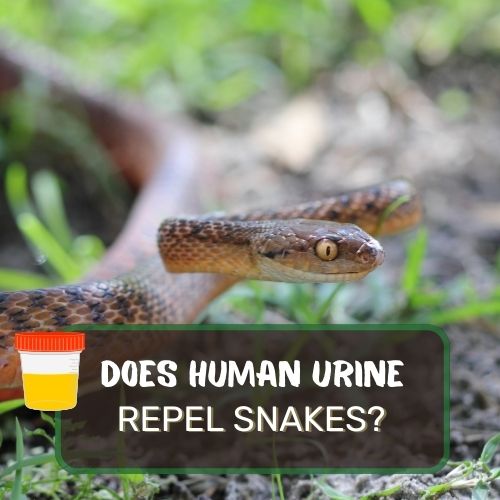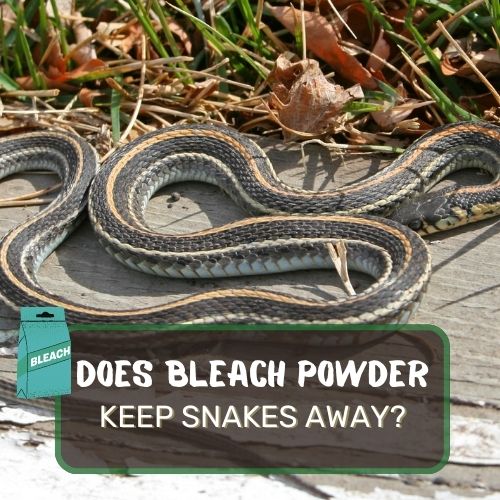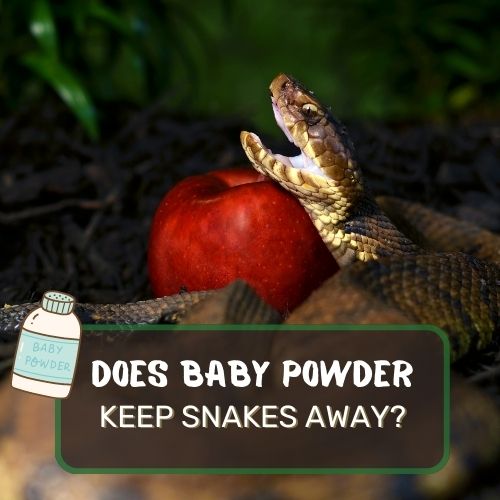In our quest for a snake-free space, myths and genuine solutions often intertwine, leaving many puzzled about what truly works. This article delves deep into various methods touted to repel snakes, from the aromatic allure of cedarwood to the high-tech promise of ultrasonic devices.
No, diesel does not effectively keep snakes away. While some believe it acts as a repellent, there’s no scientific evidence supporting this claim. Using diesel can harm the environment and pose risks to other animals and humans. It’s essential to rely on proven methods for snake deterrence.
We’ll also debunk common misconceptions and address frequently asked questions. By examining environmental impacts, scientific evidence, and practicality, we aim to guide you towards safe and effective snake deterrents.
Dive in to discover the blend of nature and technology in keeping these slithering creatures at bay.

Table of Contents
- 1 Why Diesel Isn’t Worth the Effort
- 2 Plants: Nature’s Snake Deterrent
- 2.1 Lemongrass: The Citrusy Snake Repellent
- 2.2 Garlic: Double Benefits – for Cooking and Repelling
- 2.3 Marigolds: Their Roots are a Snake’s Nightmare
- 2.4 Allium: A Powerful Repelling Odor
- 2.5 Mother-in-Law’s Tongue: The Irony of the “Snake Plant”
- 2.6 Wormwood, Holly, Basil, Snakeroot, Yellow Alder, Pink Agapanthus: Other Plants that Snakes Dislike
- 3 Cedarwood: The Pleasant Aroma Humans Love and Snakes Hate
- 4 Ammonia: Not Just for Cleaning
- 5 Mothballs: Not Just for Moths
- 6 Ultrasonic Devices: Modern Technology to the Rescue
- 7 Conclusion
- 8 Commonly Asked Questions
Why Diesel Isn’t Worth the Effort
It’s one of those myths that’s been floating around for ages, whispered from one gardener to another, passed down from generation to generation. But let’s get real for a moment and dissect this claim, shall we?
Environmental Hazards of Dumping Diesel
First off, let’s talk about Mother Earth. Pouring diesel around your property might sound like a quick fix, but it’s a nightmare for the environment. Diesel damages crops, trees, and can even cause acid rain.
Remember that time when you were horrified hearing about oil spills in the ocean? Well, dumping diesel is like having a mini oil spill in your backyard. It seeps into the soil, contaminating groundwater and harming the ecosystem.
And let’s not even get started on its contribution to global climate change. The ecosystem, weather, sea level, and agriculture are just a few aspects of nature that feel the brunt of diesel.
Diesel’s Harmful Effects on Humans and Animals
Now, imagine this: you’ve just poured diesel around your garden to deter those pesky snakes. But then, your curious dog decides to take a sniff or, worse, a lick. Diesel contains hydrocarbons like benzene, xylene, and toluene, which can harm the brain.
Not to mention, it’s toxic when ingested. And it’s not just harmful to animals. For us humans, the short-term hazards of diesel include irritation of the eyes, nose, lungs, and throat. Ever had a headache after smelling something too strong?
Diesel can do that. And in the long run? We’re talking about risks like cancer.
Lack of Scientific Evidence Supporting Diesel as a Snake Repellent
Alright, let’s get down to the nitty-gritty. Does diesel actually keep snakes away? In a word: no. There’s no scientific evidence to back up this claim. Snakes, being the clever creatures they are, won’t drink diesel.
They have a keen sense of smell and can detect that it’s not a tasty treat. Inhaling it doesn’t harm them, and it certainly doesn’t deter them.
So, while you’re causing potential harm to the environment, yourself, and other animals, snakes are probably slithering around, unfazed.

Plants: Nature’s Snake Deterrent
Nature, in its infinite wisdom, has provided us with many tools to keep our spaces safe and snake-free. One of the most organic and eco-friendly ways to deter snakes is by planting specific plants that these reptiles find unappealing.
Let’s dive into the green world of snake deterrents!
Lemongrass: The Citrusy Snake Repellent
Lemongrass, with its tall stalks and lovely citrus aroma, isn’t just great for your teas or Asian dishes. Snakes, particularly rattlers, aren’t fans of its scent.
Planting these around the perimeter of your property can act as a natural barrier against these slithering creatures.
Garlic: Double Benefits – for Cooking and Repelling
Ah, garlic! Beloved in kitchens worldwide, this pungent bulb does more than just flavor your food. Its strong smell is something snakes would rather avoid.
Plus, planting garlic might also keep away some pests that snakes feed on, reducing their reasons to visit.
Marigolds: Their Roots are a Snake’s Nightmare
Marigolds are not just pretty to look at. These vibrant flowers have roots that emit a strong odor, which snakes find off-putting.
So, while you enjoy a burst of color in your garden, snakes will think twice before crossing a marigold barrier.
Allium: A Powerful Repelling Odor
Alliums, with their globe-like flowers, are a sight to behold. But beneath their beauty lies a potent snake-repelling scent. Being a close relative of garlic, they share the same pungent aroma that snakes detest.
Mother-in-Law’s Tongue: The Irony of the “Snake Plant”
It’s quite ironic that the “snake plant,” also known as Mother-in-Law’s Tongue, is on this list. Its sharp-edged leaves and unique appearance make it a favorite indoor plant. But its scent? Not so much for snakes.
Wormwood, Holly, Basil, Snakeroot, Yellow Alder, Pink Agapanthus: Other Plants that Snakes Dislike
The list doesn’t end there! Many plants can help in your quest to keep your garden snake-free.
Wormwood, with its silvery foliage; holly, with its prickly leaves; basil, a favorite in pesto but not among snakes; snakeroot, which is as effective as its name suggests; yellow alder, with its bright flowers; and pink agapanthus, a beauty that snakes would rather not be around.
All these plants have properties that make them unattractive to snakes.

Cedarwood: The Pleasant Aroma Humans Love and Snakes Hate
Benefits of Cedar Mulch
Cedar mulch is more than just its delightful aroma; it’s a garden’s best friend. This organic mulch helps retain soil moisture, ensuring your plants are always hydrated. Plus, it acts as a natural weed suppressant, keeping those pesky invaders at bay.
But here’s the kicker: snakes can’t stand it. The natural oils in cedarwood are a deterrent, making snakes reconsider setting up shop in your garden.
How to Use Cedar Sawdust as a Repellent
If the mulch isn’t cutting it and you need a stronger line of defense, cedar sawdust is your answer. Sprinkle it around your garden’s perimeter or in specific areas you want to shield.
It’s like drawing a protective circle that snakes dare not cross, sending a clear “No Snakes Allowed!” message.
Ammonia: Not Just for Cleaning
The Types of Ammonia Suitable for Repelling Snakes
Ammonia is more than just a cleaning agent. When it comes to repelling snakes, clear, unscented ammonia is the gold standard.
While there are various types of ammonia on the shelves, the ones with added fragrances or dyes might not pack the same punch. It’s the strong, unmistakable odor of pure ammonia that snakes find utterly repulsive.
How and Where to Apply Ammonia
Ready to give snakes the boot? Soak rags or cotton balls in ammonia and place them in unsealed plastic bags, letting that pungent aroma waft out. Strategically position these bags: think entrances, pathways, or snake hotspots.
But remember, ammonia is strong stuff. Keep it away from kids and pets, wear gloves when handling, and always ensure you’re in a well-ventilated area.
Mothballs: Not Just for Moths
How the Strong Smell of Mothballs Repels Snakes
Mothballs, traditionally used to protect our beloved woolens from pesky moths, have a secret superpower: repelling snakes. The potent aroma emitted by mothballs is not just unsettling for moths but also for snakes.
These slithering creatures have a keen sense of smell, and the naphthalene or paradichlorobenzene found in mothballs is not on their list of favorite scents. In fact, it’s quite the opposite.
The strong odor acts as a deterrent, making snakes think twice before venturing into an area dotted with these little white balls.
Creative Ways to Use Mothballs Outdoors
While simply scattering mothballs around might do the trick, getting creative can enhance their effectiveness. Consider placing them in mesh bags and hanging them around your garden or property.
This not only keeps them contained but also allows the scent to spread more effectively. Another idea? Bury them shallowly along garden borders or pathways, creating an underground scent barrier that snakes would rather not cross.
Ultrasonic Devices: Modern Technology to the Rescue
Introduction to Ultrasonic Devices
In the age of technology, even snake repellents have gone digital. Enter ultrasonic devices: gadgets that emit high-frequency sound waves, inaudible to humans but highly disturbing for snakes.
These waves mess with the snakes’ communication and navigation, making your property a no-go zone for them.
Examples of Effective Ultrasonic Repellents
Several ultrasonic repellents have gained popularity among homeowners. Devices like the “Solar Snake Repeller” harness solar power to emit pulsing vibrations, sending snakes scurrying away.
Another favorite is the “Ultrasonic Pest Repellent,” a plug-in device suitable for both indoor and outdoor use. These devices, with their non-toxic approach, offer a modern solution to an age-old problem.
Whether you’re going old school with mothballs or embracing the tech route with ultrasonic devices, there are multiple ways to keep your space snake-free. Choose your warrior and reclaim your territory!

Conclusion
You’ve journeyed through the myriad of methods to deter snakes, discerning fact from fiction. From the natural allure of cedarwood and the pungency of ammonia to the technological prowess of ultrasonic devices, you’re now equipped with knowledge.
Remember, while myths like diesel may seem tempting, it’s crucial to prioritize environmentally-friendly and scientifically-backed solutions. You have the power to make informed choices for a snake-free space.
Keep exploring, stay curious, and always choose the path of knowledge and safety. You’ve got this!
Commonly Asked Questions
Let’s address some of the most commonly asked questions to set the record straight.
What Smells Will Keep Snakes Away?
Snakes have a keen sense of smell, and certain odors are particularly off-putting for them. Strong scents like ammonia, garlic, and cedarwood are known to deter snakes. Additionally, essential oils such as clove and cinnamon can also act as repellents.
Does Jeyes Fluid Keep Snakes Away?
Jeyes Fluid, a popular outdoor disinfectant, has been rumored to repel snakes. While its strong smell might be a deterrent for some pests, there’s no concrete evidence to suggest it’s a reliable snake repellent.
Does Engine Oil Keep Snakes Away?
Another myth in the making! Engine oil might seem like a solution, but it’s neither safe for the environment nor a proven method to repel snakes. It’s best to steer clear of this method.
Do Snakes Hate Vinegar?
Yes, they do! The pungent smell of vinegar is not a favorite among snakes. Spraying a mixture of white vinegar and water around the perimeter of your property can act as a deterrent.
Does Baby Powder Keep Snakes Away?
While baby powder might make your skin feel smooth, its efficacy as a snake repellent is questionable. There’s no scientific evidence to back up the claim that snakes dislike baby powder.




0 Comments